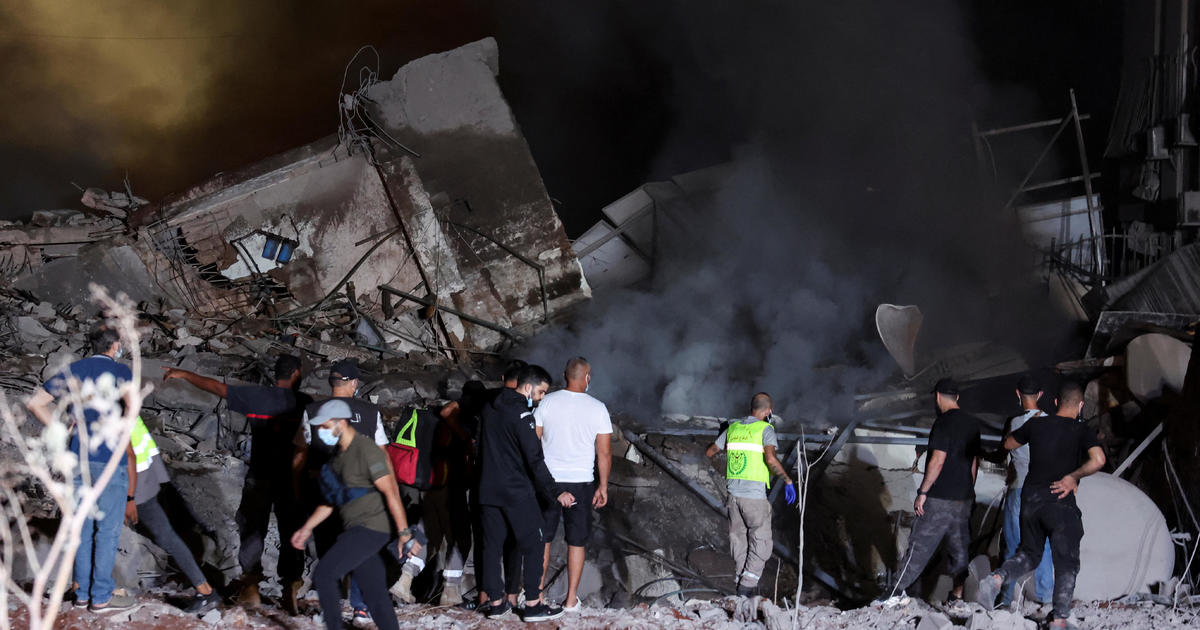Israel carried out a series of massive airstrikes targeting Hezbollah’s headquarters in Beirut on Friday, leveling multiple high-rise apartment buildings and causing significant damage to the Lebanese capital. The attacks, which resulted in at least six deaths and 91 injuries, are considered the most significant since the beginning of the conflict between Israel and Hezbollah.
Israeli Strikes on Hezbollah Headquarters
The Israeli military stated that the strikes aimed to eliminate Hezbollah’s senior leadership, specifically targeting the group’s headquarters located in the Dahiyeh district of Beirut. While the Israeli government has not confirmed the death of Hezbollah leader Hassan Nasrallah, a senior Israeli official reported that the strikes were directed at him. Hezbollah has not publicly confirmed Nasrallah’s status, and the death toll is expected to rise as rescue crews continue searching through the rubble of the destroyed buildings.
Targeting Strategy and Implications
Israel’s decision to carry out daytime strikes, aiming to minimize civilian casualties, highlights their intention to target specific high-value individuals and infrastructure within Hezbollah’s ranks. The strike’s success, if confirmed, would deal a major blow to the organization and potentially create a leadership vacuum, weakening their operational capabilities.
International Reactions and Diplomatic Efforts
The Israeli strikes have drawn international condemnation, with the United States expressing concern over the escalating conflict and urging all parties to de-escalate the situation. Secretary of State Antony Blinken emphasized the importance of responsible action from all sides, while also acknowledging Israel’s right to self-defense against terrorism. Diplomatic efforts to mediate a ceasefire have been underway, with the U.S. proposing a 21-day truce to facilitate a diplomatic solution.
Hezbollah’s Response and Continued Resistance
Despite the devastating strikes, Hezbollah has remained defiant, vowing to continue their support for Palestinian groups and resisting the Israeli offensive. They have shown unwavering commitment to their cause and have not wavered in their calls for resistance against Israel. The group has also expressed its readiness to replace any losses suffered in leadership ranks, signaling their determination to remain a potent force.
Operational Considerations and Impact
While Israel’s strikes have undoubtedly damaged Hezbollah’s military capabilities, the group retains a vast arsenal of rockets and missiles. The full extent of their remaining strength and the consequences of the leadership changes remain uncertain. Israel’s military goals appear focused on pushing Hezbollah away from the border and degrading their offensive capabilities, in contrast to the broader aim of dismantling Hamas in Gaza.
International Concerns and Potential Implications
The ongoing conflict poses a significant risk to regional stability and peace. The escalation of violence between Israel and Hezbollah raises concerns about the possibility of a wider regional war, with potential implications for the wider Middle East and beyond. The international community is grappling with the complex and volatile situation, with ongoing diplomatic efforts seeking to de-escalate the conflict and avoid further bloodshed.
Take Away Points
- The Israeli strikes on Hezbollah’s headquarters in Beirut represent a major escalation in the ongoing conflict, with the potential to significantly impact the organization’s leadership and capabilities.
- Despite heavy losses, Hezbollah remains defiant and committed to resisting Israel’s offensive, raising concerns about continued escalation and the possibility of a wider regional conflict.
- The international community is actively engaged in diplomatic efforts to achieve a ceasefire and de-escalate the situation, but the future of the conflict remains uncertain, with high stakes for the region and the world.









